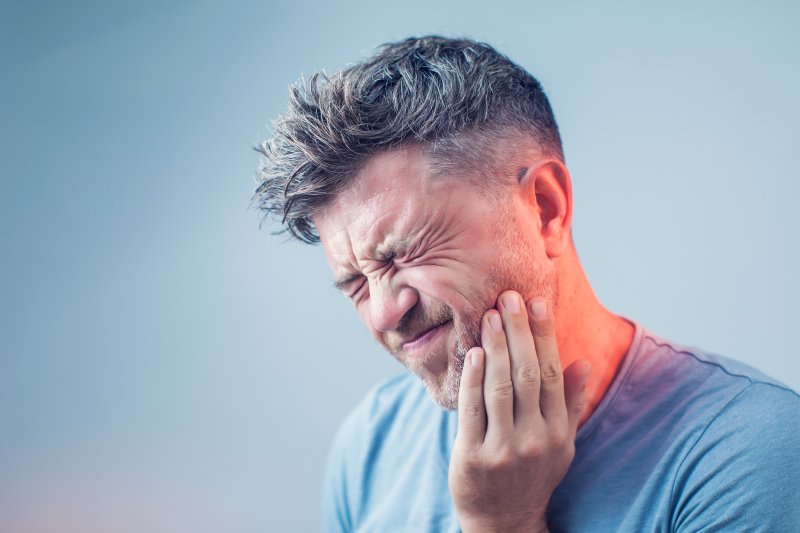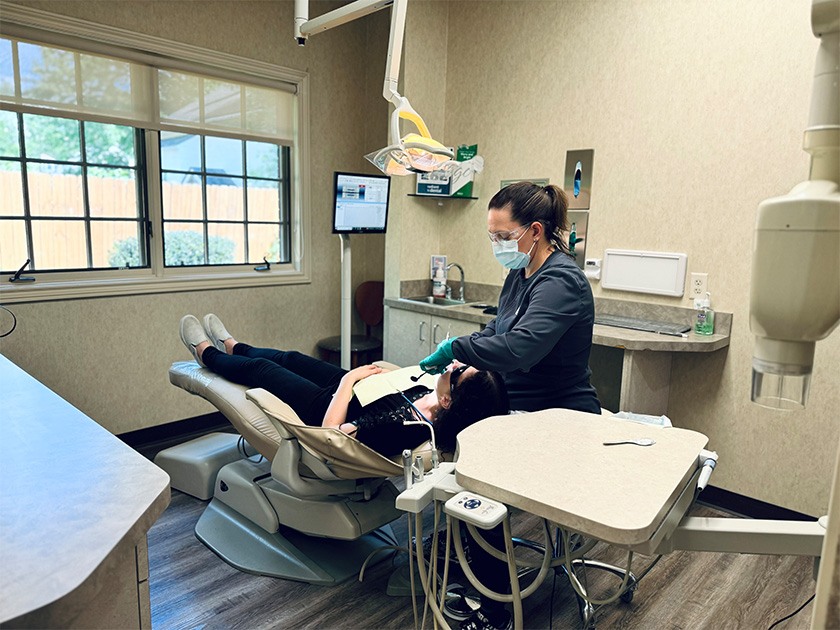
Chipped teeth are common dental injuries that can happen during sports, after falls, as a result of teeth grinding, and for a variety of other reasons. This issue may be a dental emergency depending on its severity, but mild cases can usually wait for a few days before being treated. Here’s a brief guide to chipped teeth that includes a few tips for handling the problem and a few of the treatments your dentist may use to repair your smile.
How Can a Tooth Become Chipped?
Teeth are usually chipped due to blunt force trauma or gradual erosion, and they are particularly common in athletes, daredevils, and people with certain bad habits. Chipping a tooth makes it more vulnerable to infection and injury and may result in dental sensitivity, meaning that it requires timely dental intervention. A few of the reasons a tooth may be chipped include:
- Dental injuries due to falling
- The teeth being weakened by decay
- Biting into hard objects such as hard candy, nuts, or bones
- Sports injuries
- Accidental injuries
- Poor nutrition
- Clenching or grinding your teeth (also called bruxism)
- Chewing on non-food items such as writing utensils, ice, or toothpicks
- Using the teeth as tools to open packages or bottles
What Should I Do If I Chip a Tooth?
When you chip a tooth, call your emergency dentist to explain the situation. They will schedule you for an upcoming appointment and provide you with first-aid instructions to help you protect the tooth and manage any discomfort. Rinse your mouth out with warm water to flush away bacteria and any lingering tiny shards of your tooth. Try to locate and secure any large pieces of the tooth and wrap it in wet gauze so can bring it to your dentist’s office. You can treat pain and swelling with a cold compress or over-the-counter pain relievers.
How Can My Dentist Address a Chipped Tooth?
The best way to treat a chipped tooth depends on how severe the damage is. Sometimes, the chipped piece can be reattached to the tooth. In minor cases, your dentist may recommend treating the problem with direct bonding or veneers. To perform direct bonding, your dentist will fill in and conceal the chip with tooth-colored composite resin, which is the same material used for white fillings. They will then shape the resin so it matches the curves of your teeth. If the tooth is especially prominent, concealing the damage with a veneer may be the better option.
However, in severe cases, a chipped tooth may require a more extensive treatment such as a root canal or a dental crown to protect it from infection and further damage.
A chipped tooth deserves prompt attention so it can receive the proper care. By allowing your dentist to examine and treat your injured tooth, you can avoid more serious problems down the road.
About the Author
Dr. Reem Saywa earned her dental degree at the University of Detroit Mercy Dental School and stays up to date with the latest developments in her field by completing continuing education courses. She is a Certified Invisalign Provider who is dedicated to protecting the oral health of Farmington Hills, MI. Areas of expertise include general, restorative, cosmetic, and emergency dentistry. If you have chipped a tooth, dial (248) 855-4850. For more information, contact her office online.

